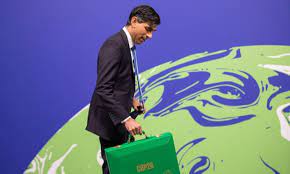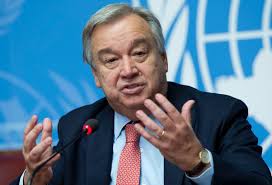Aid watchdog questions UK’s climate finance accounting

London: The United Kingdom has counted an additional £1.7 billion ($2.15 billion) towards its £11.6-billion climate finance target without giving any more money to vulnerable developing countries, an independent watchdog has found.
In response to the review by the Independent Commission for Aid Impact (ICAI), climate and development groups accused the UK government of using accounting tricks to meet its climate finance goal for the five-year period from 2021-2026 after pandemic-related fiscal pressures led it to slash its overall aid budget.

The ICAI assessment said the government had “moved the goalposts” by changing the way meeting the target is calculated and including all eligible aid such as a 30% share of humanitarian funding in the 10% of countries most vulnerable to climate change.
Reaching the £11.6-billion goal would be “challenging”, the ICAI added, with 55% of that amount still to be spent in the last two years of the commitment, including up to £3.8 billion due in the final year following a general election due this year.
Last summer, climate negotiators from developing countries told Climate Home News media reports that Britain would break its flagship international climate finance pledge were “disappointing” and undermined trust, although the government denied it would miss the goal.
In confidential government documents made public this month during a court case, civil servants again warned of “material risks” to meeting the commitment.
A spokesperson for the Foreign, Commonwealth & Development Office (FCDO), the ministry that oversees the aid budget, said on Thursday the government welcomed the ICAI review and confirmed the UK “remains on track” to meet its international climate finance commitment.
Chief Commissioner Tamsyn Barton, who led the review, said the ICAI was “concerned that by altering its accounting methods and identifying existing spend as International Climate Finance to include that funding in the total, rather than providing new money, the UK is offering less additional assistance than was originally promised”.
Aid groups and opposition politicians were highly critical of the move by the Conservative government, warning it risked losing its international climate policy leadership by not providing more support for those on the frontlines of worsening extreme weather and rising seas.
“The government’s sums on climate finance simply don’t add up and this creative accounting does nothing to help people in lower-income countries – those least responsible for the climate crisis – deal with the devastating impacts they are facing,” said Chiara Liguori, Oxfam GB’s senior climate justice policy advisor.
“Instead of raiding a dwindling aid budget, the UK should be setting an example and increasing climate funding by making the biggest and richest polluters carry a fairer share of the cost,” she added.
Parliamentarian Caroline Lucas, former Green Party leader, said the accounting change would “further erode any last trust in the UK as a climate leader and country of its word”.
The ICAI acknowledged that the UK aid budget had come under pressure in recent years amid escalating humanitarian crises and conflicts and the rising cost of hosting asylum seekers and refugees in Britain, particularly those fleeing the Russian invasion of Ukraine.
It also noted that media reports last year had far overestimated the share of the aid budget that would need to be used for climate change projects to meet the target.
The ICAI recommended that the government craft a detailed internal plan on how the remaining portion will be met, including through which channels, and produce an annual report to demonstrate publicly how that is being done.
It also said gender considerations should be integrated into all climate finance and tracked with a marker, which so far has covered only about half of the amount.
In addition, it urged the government to monitor climate finance for small-island developing nations, fragile and conflict-affected states, and least developed countries, after raising concerns that current spending may not be fully suited to their needs.
The accounting changes mean that more of Britain’s climate aid was translated into loans rather than grants, the review found, noting that this is less appropriate for the poorest and most vulnerable countries, many of which are highly indebted.
The FCDO spokesperson said the government would respond to the recommendations “in due course” – which the ICAI said is expected in April.
‘Playing with lives via a spreadsheet’
Tom Mitchell, executive director of the International Institute for Environment and Development, said discussions about “clever accounting by politicians” often obscured the human cost of climate change, with people in the Global South already losing their lives and incomes to weather disasters and longer-term climate pressures.
“If Britain wants to continue claiming a spot in the vanguard of the climate battle, it must do everything it can to help, and deal honestly with countries worst affected by global warming,” he said in a statement.
Zahra Hdidou, senior climate and resilience adviser at humanitarian charity ActionAid UK, urged the government to commit to new and additional climate funds in line with the urgency and scale of the climate crisis.
“No more playing with lives via a spreadsheet,” she added.





